Digest of Events From the Virtual World
The artificial intelligence and technology industry is among the fastest-growing sectors today. Innovations emerge at lightning speed, quickly integrating into nearly every aspect of human life.
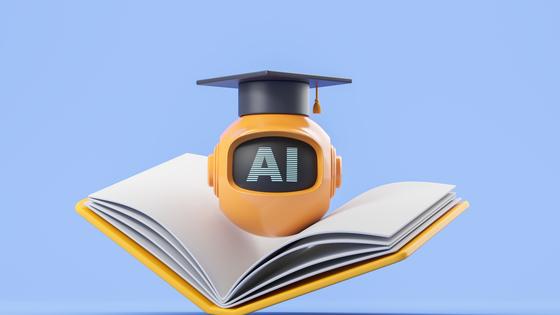
To keep you informed, we have compiled a digest of the latest developments in the world of big technology.
How Do You Effectively Teach Students About AI and Its Applications? Expert Insights From Professor Fawzi BenMessaoud
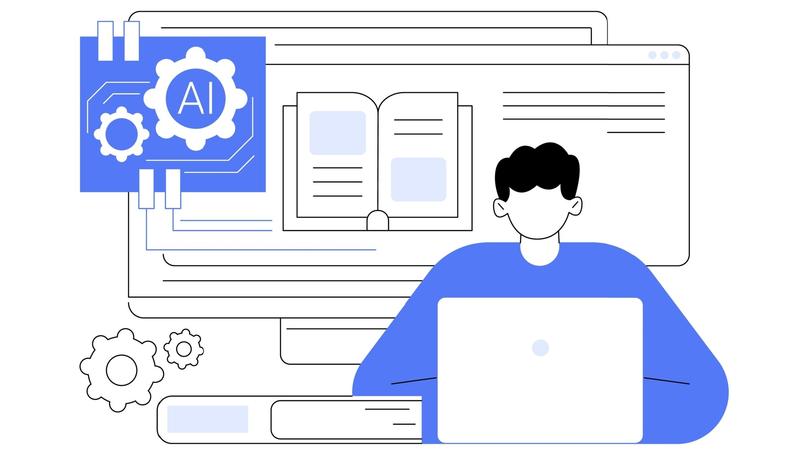
One of the most pressing questions in our age of advanced technology and innovation is how we can successfully compete with robots, self-actualize, and find meaningful work - without being replaced by soulless machines (though who knows what the future holds). The key to remaining in demand is to follow the current trends in the EdTech field and continuously acquire new knowledge and skills. This includes mastering the capabilities of neural networks and harnessing artificial intelligence. Fawzi BenMessaoud, a professor of information technology and a lecturer at the School of Informatics, Computing, and Engineering at Indiana University, believes this approach is essential. He is confident that modern education should not only respond to technological breakthroughs but actively promote them, fostering new developments. Therefore, in addition to learning how to use AI effectively, we must also build genuine relationships with it, adhering to ethical and moral standards, while never losing sight of the importance of critical thinking.
To achieve this, he highlights three key areas of knowledge that students must develop:
-
Human Intellectual Abilities: Skills unique to human cognition, such as critical thinking, situational analysis, reflection, and the ability to teach and learn.
-
Intelligent Design for AI: A skill set that includes systems thinking, critical assessment, and knowledge of UI/UX design.
-
Big Data Proficiency: The ability to verify, process, and manage large datasets effectively.
BenMessaoud has visualized his theory in a three-part model, with each section representing a core competency. Within these areas, additional skills play a crucial role. For instance, intellectual abilities encompass reasoning and self-reflection, while intelligent design requires an understanding of user experience. Big data proficiency, on the other hand, involves data verification, processing, and management. According to BenMessaoud, these are essential skills for successful living in today's world.
BenMessaoud explores these ideas further in his work, "Must-Have Competencies and Skills in Our New AI World: A Synthesis for Educational Reform". He strongly advocates for higher education programs to dedicate sufficient time to developing these competencies in students, ensuring their success in an AI-driven world.
AI Can Reduce Training Time
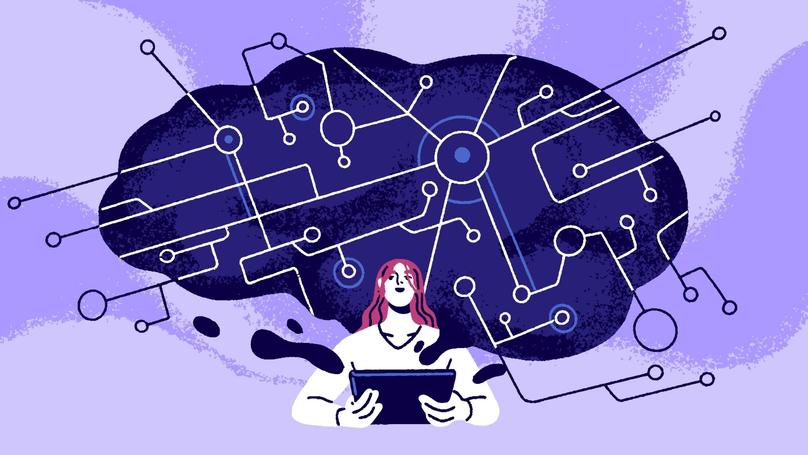
At the end of last year, Sven Schütt, CEO of the IU Group and founder of the International University of Applied Sciences, spoke with McKinsey about how AI could significantly shorten training times. At IU University, educators not only enhance curricula with new subjects, masterclasses, and interactive elements but also integrate AI-powered tools such as chatbots, neural networks, and language models. Schütt believes that these digital assistants enable students to grasp complex topics more easily - potentially cutting learning time by up to 50%. This acceleration provides students with greater flexibility, allowing them to balance their studies with work and gain practical experience in their chosen field from their very first year.
Schütt also highlighted how the widespread adoption of AI will transform the role of teachers. AI will take on the task of adapting programs, personalize learning, and assess student progress, while educators will shift into the role of mentors and facilitators. "In the future, teachers will be more like creators of social environments rather than disseminators of knowledge," he stated.
Beyond reducing learning time and reshaping the teacher's role, another key shift is the rise of lifelong learning - a trend that will soon reach its peak, largely driven by technological advancements. As AI continues to integrate into all aspects of work and education, people will increasingly recognize the necessity of continuous learning, skill development, and adaptation. Schütt predicts that in the near future, everyone will have their own AI assistant to remind them of upcoming tasks, unresolved issues, and personal goals - motivating and inspiring them to pursue education, career growth, and self-improvement.
Researchers and Educators Concerned Over Censorship in DeepSeek Neural Network

This year, the AI and neural network industry was taken by surprise with the unexpected launch of the DeepSeek chatbot, developed by the Chinese company of the same name. DeepSeek's capabilities closely rival those of its main competitor ChatGPT, which had long been considered the leader in the field. Like ChatGPT, DeepSeek can process text in various formats, provide advice and recommendations, and quickly search for information. Perhaps most notably, it is available for free.
However, a significant drawback of DeepSeek is its built-in censorship restrictions. For example, the chatbot refuses to answer questions about the 1989 Tiananmen Square protests, during which student-led demonstrations calling for political reform were violently suppressed by armed forces and tanks. Additionally, on other political topics, DeepSeek strictly aligns with the official stance of the Chinese Communist Party. This has raised concerns among researchers, who fear that censorship in an AI system with such wide reach could contribute to misinformation and an increase in propaganda.
Another major issue is DeepSeek's handling of user data. The American cybersecurity firm Wiz discovered a serious vulnerability, revealing that the chatbot had left approximately one million rows of chat history unprotected and publicly accessible. Experts and developers warn that using AI without proper security measures poses significant risks, further underscoring the need for strict data protection policies in artificial intelligence systems.
Global Tech Leaders Partner With the Cal State System
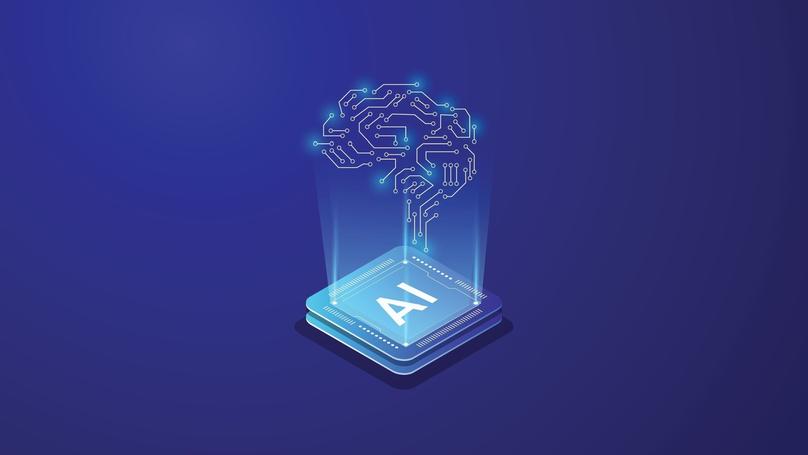
The California State University (CSU) system is taking significant steps to expand the number of students and faculty proficient in artificial intelligence. To promote the responsible and effective use of AI, CSU has partnered with industry leaders such as Microsoft, OpenAI, Google, and others. This collaboration is part of a large-scale educational initiative aimed at training highly qualified specialists in one of the most populous states in the U.S.
The program was launched in response to the rapidly growing demand for professionals who not only excel in their respective fields but also possess advanced AI skills. "This is a celebration of innovation, education, and a shared commitment to progress and equal opportunity for all," said CSU Chancellor Dr. Mildred García. She believes this partnership with tech giants will enhance student success by offering personalized learning experiences, increasing engagement through gamification, and integrating a range of digital tools into education.
Which Professions Will Survive Artificial Intelligence?
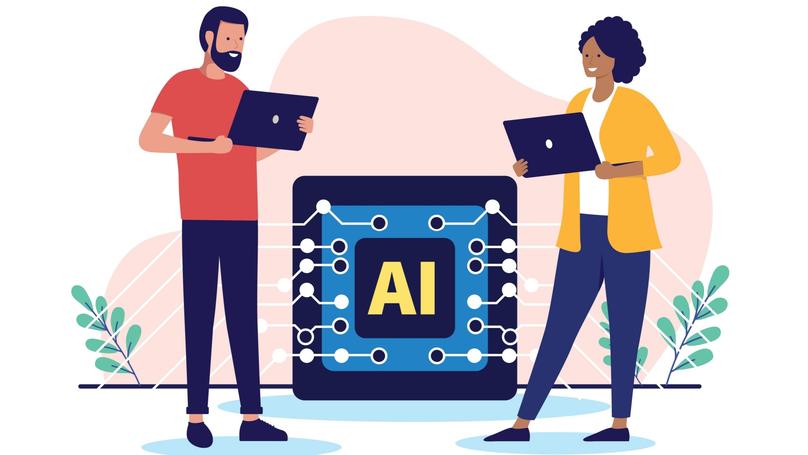
AI and neural networks have significantly reshaped the job market, but it is far too soon to declare that chatbots and language models will replace all human workers. While automated maintenance, self-driving cars, and other autonomous systems have become commonplace, there are still fields where AI serves primarily as an assistant - helping with information retrieval and big data analysis rather than replacing human expertise.
One such field is the creative industry. AI has yet to produce content with the same depth, originality, and emotional resonance as a skilled human professional. Literature, music, and fine arts rely on emotional connection, conceptualization, and advanced creative and critical thinking - qualities that neural networks still lack.
Another area where human workers remain indispensable is the social sector. Jobs that involve caregiving, counselling, and social support require not only effective communication but also empathy and the ability to build trust - traits that are extremely difficult to automate.
Similarly, skilled trades continue to be resistant to automation. Despite AI's ability to process and organize vast amounts of information, robots still cannot match human dexterity in hands-on professions like plumbing, electrical work, carpentry, or mechanical repair. These jobs demand a combination of technical expertise and manual skill that AI has yet to master.
Ultimately, human imagination, social intelligence, and craftsmanship remain vital. However, as technology advances, professionals in all industries must be prepared to adapt, continuously learn new skills, and integrate emerging technologies to ensure that people - not robots - continue to drive progress.
Teachers Continue to Struggle With AI Over Student Cheating
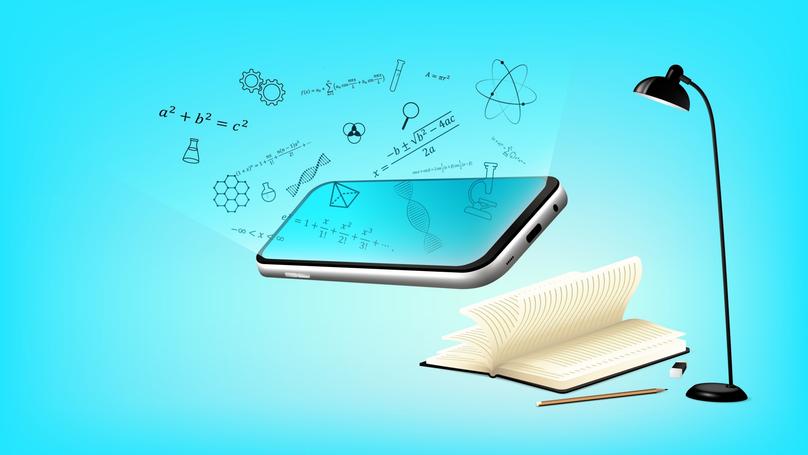
While educators and students worldwide acknowledge the vast potential of generative AI, they are also witnessing a sharp rise in academic dishonesty using neural networks. As a result, traditional methods of assessing student performance are becoming increasingly ineffective.
AI can effortlessly complete a wide range of tasks, from writing essays and analyzing big data to solving complex math problems. However, its misuse by students has become a growing concern. According to a report by the research firm Wiley, 68% of surveyed educators believe that generative AI has a negative impact on academic integrity - undermining the principles of honesty, trust, and respect in education.












 9 Career Mistakes Young Professionals Make
9 Career Mistakes Young Professionals Make
 £23 million allocated for the expansion of EdTech Testbed in the UK
£23 million allocated for the expansion of EdTech Testbed in the UK
 Tuskegee University launches Global Campus — a new online platform
Tuskegee University launches Global Campus — a new online platform
 Test: How Psychologically Mature Are You? Check Your Inner Foundation.
Test: How Psychologically Mature Are You? Check Your Inner Foundation.
 Test. Check Your Social Media Dependency Level!
Test. Check Your Social Media Dependency Level!
 Test: What Business is Right For You?
Test: What Business is Right For You?
